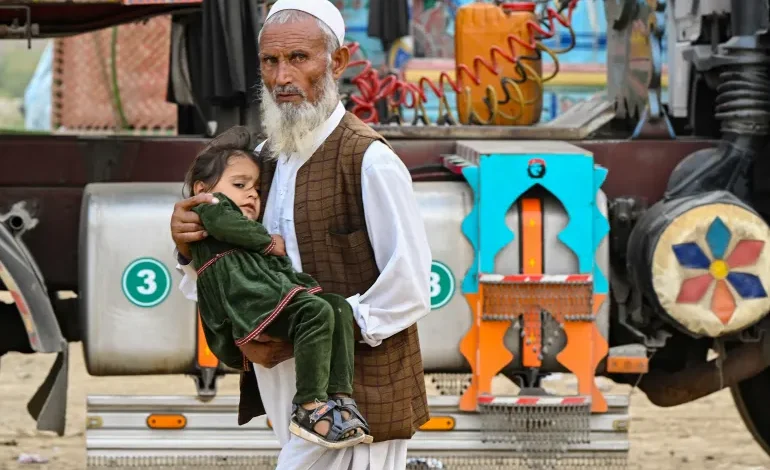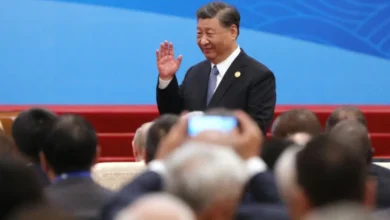As Pakistan deports refugees, tense Afghanistan ties come in sharp focus

Pakistan’s decision to expel more than 1.5 million allegedly undocumented Afghan refugees and migrants has once again triggered tensions with the Taliban-ruled Afghanistan.
Since October 31 when a government deadline for the refugees to leave Pakistan or face detention ended, more than 200,000 Afghans have crossed into Afghanistan, officials said, amid stringent criticism by Kabul.
“This is injustice, an injustice that cannot be ignored in any way. The forced expulsion of people is in conflict with all the norms of good neighbourliness,” Bilal Karimi, spokesperson for the Afghan government, told Al Jazeera on Monday.
“In the long term, there may be many negative effects on the relations and communications between the two countries.”
Pakistan says most Afghans have left voluntarily, a claim rejected by Kabul which has called the Pakistani action “unilateral” and “humiliating”.
“The expulsion of Afghan refugees in such a large volume and in such a humiliating manner, when winter is coming and the weather is getting colder, is a cruel and unfair decision,” Karimi said.
In the late 1970s and 1980s, tens of thousands of Afghans fled to Pakistan after the Soviet invasion of the country, and more came after the United States attacked the impoverished country following the 9/11 attacks.
More recently, between 600,000 and 800,000 Afghans are believed to have arrived in Pakistan after the Taliban assumed power in 2021.According to the Pakistani government, there were about 4 million foreigners in the country before October 31, nearly 3.8 million of them Afghans. Of those, it says, only 2.2 million Afghans carry a government-approved document that makes them eligible to stay.
On October 3 when the decision to deport “illegal” refugees was announced, interim Interior Minister Sarfraz Bugti said of the 24 suicide bombings in the country this year, 14 were carried out by Afghan nationals.
At the centre of the deteriorating relations between the neighbouring nations is Tehreek-e-Taliban Pakistan (TTP), a banned armed group also referred to as the Pakistani Taliban for its ideological proximity to the Taliban rulers in Afghanistan.
Founded in 2007, the TTP says its goal is to impose its hardline interpretation of Islamic law over Pakistan.
The group has been accused of hundreds of deadly attacks after it ended a ceasefire agreement with the Pakistani government a year ago. On Saturday, it allegedly attacked a Pakistan Air Force base in Mianwali in Punjab province, damaging three grounded aircraft.
But most TTP attacks have mostly taken place in the Khyber Pakhtunkhwa and Balochistan provinces, both of which share a long border with Afghanistan.
Pakistan says the TTP enjoys safe havens in Afghanistan and uses its soil to launch attacks against Pakistani security forces and installations. Afghan authorities have consistently denied the allegations, saying they have nothing to do with Pakistan’s internal security concerns.
Last week, Afghanistan’s interim Prime Minister Mullah Mohammad Hassan Akhund said Pakistan’s decision to expel refugees violated international laws. “You [Pakistan] are a neighbour, you should think about the future,” he said.
Akhund’s deputy Sher Mohammad Abbas Stanikzai was more scathing in his response, warning Islamabad to “not force their hand to react over the move”.
“We expect Pakistan’s security forces and civilian government to change their behaviour. The reaction of Afghans is historically known to the whole world. Most of the time they don’t show any reaction, but if they do show, they are recorded in history,” Stanikzai said during a news conference in Kabul on Monday.










